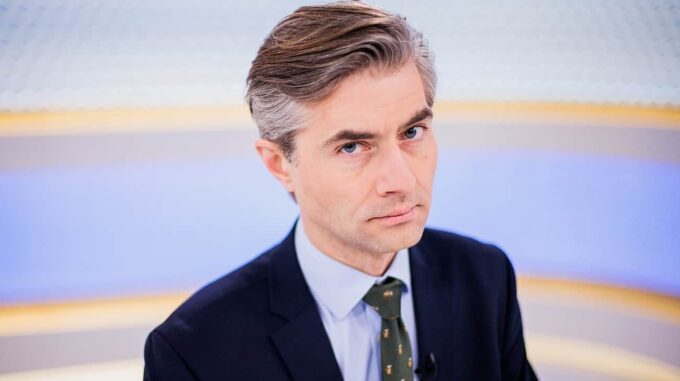The Lithuanian Foreign Minister condemns the possible recognition of Russian claims over Crimea and warns of threats to the international system

Lithuanian Foreign Minister Gabrielius Landsbergis has once again expressed sharp condemnation of potential steps that could follow in the context of diplomatic negotiations regarding Ukraine and the Crimean issue. In his statement, he emphasized that any recognition and legitimization of Russia’s claims to the annexed peninsula pose a serious danger to the modern international legal order. According to him, such actions undermine established norms and directly support the aggressor, who has been unlawfully occupying the territory for eight years. The head of Lithuania’s Foreign Ministry stressed that the Crimean issue cannot and should not be a subject of bargaining or compromise. “This cannot be a matter for discussion,” he underlined in a comment to Lithuanian radio LRT. “This territory is extremely sensitive and delicate, and any recognition of it as lawful or legitimate sends a signal to other potential aggressors that if you occupy a territory and hold it for several years, you can claim the right to own it.” Regarding recent diplomatic initiatives, including possible negotiations between the US and Russia about ending the war in Ukraine, Landsbergis noted that the situation remains unresolved and far from concrete results. In his view, there are many different perspectives and interpretations, but it is clear that there is currently no signed or official agreement. Any reports of agreements should be regarded as more speculative than actual steps. Furthermore, in his commentary, Landsbergis expressed concern about reports indicating that US leadership, including former President Donald Trump, might consider recognizing Russia’s claims over Crimea. He called such intentions “thoughts that go beyond international law,” emphasizing that such actions could significantly damage the reputation of the US on the global stage. He warned that the stakes are high: “Questioning the principles of international law and the status of Crimea opens the door to unpredictable consequences. This is a path toward chaos, from which demons will emerge that will be difficult to stop.” According to the Lithuanian minister, further weakening of US credibility could lead to a reduction in their influence and ability to set the rules of the game worldwide, based on their immense political and military hegemony. “If steps opposing current principles are voiced on the international arena, it will substantially diminish US diplomatic leverage and undermine their authority as a global leader,” Landsbergis stated. It is important to consider this situation and its potential consequences within a broader context often discussed in the international community. Recent weeks have seen reports suggesting that the administration of former US President Donald Trump is allegedly considering accepting Russian claims over Crimea, which has sparked criticism and concerns among European allies. According to media reports, a one-page document was presented in Paris last week, reportedly an “final proposal” regarding a resolution to the Ukrainian-Russian conflict. The document mentioned the possibility of formal recognition by Russia of control over Crimea and the lifting or easing of sanctions imposed by the European Union and the US against Moscow. Meanwhile, Ukrainian President Volodymyr Zelensky unequivocally condemned any such proposals from the US, emphasizing that Crimea is an integral part of Ukraine and its status should be determined solely on the basis of international law. Conversely, former President Trump and his allies criticized Zelensky’s statement, arguing that “Crimea was lost many years ago” and that any attempts at its official recognition by Russia would harm future diplomatic negotiations. Many questions remain about the appropriateness and consequences of such high-level political statements, as Crimea continues to be one of the most sensitive and disputed issues in contemporary international politics. In conclusion, Lithuania’s position, articulated by its foreign policy leader, deserves attention as an important signal from behind the scenes of global diplomacy. It once again underscores that any attempts to legitimize occupation, violate sovereignty, and change the status quo without international community’s consent can not only escalate the conflict but also have far-reaching negative consequences for the international rule of law and global security.

